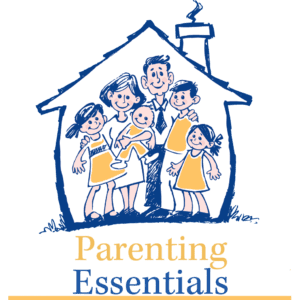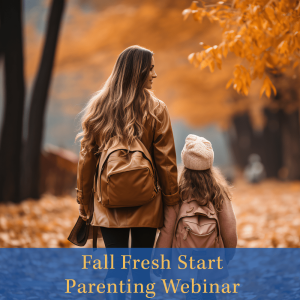The Illusion of Innocence Facing Today’s Children
In a world full of sexual depravity, diverse addictions, familial dysfunction, lascivious social platforms, manipulative media, and irate people of all ages, is it possible to even hope for our children to have an innocent upbringing?
A routine trip through a store like Walmart, for example, can start a child’s brain processing in sexual and dysfunctional directions. What is a parent to do about this problem? How can a family live in the world but not become part of all the lewdness and cruelty so many people in society are laughing at?
The Illusion of Innocence: Living in the World
For many years I’ve taken my children, and often other children I teach, to the Utah Shakespeare Festival. Every time prior to attending, I call the festival and check to be sure the play is developmentally appropriate for children and will preserve their innocence.
This year I asked the usual questions about lewdness, innuendo, and sexually inappropriate conduct to the festival staff. I was told the show was “family friendly” and “suitable for all ages.” I was told the play was the same one seen by school children that year.
We were horrified when the play ended up containing sexual harassment and sexual violence against women, including simulations of rape and ripping women’s clothes off as well as characters running around in their underwear for long periods of time and making graphic sexual gestures.
Luckily, many of the children had been trained to not look at such filth. They covered their eyes and turned their heads during these disappointing displays.
The promotion of this play as “suitable for all ages” is a perfect example of what I call “the illusion of innocence.” The production is called “suitable” so everyone assumes that what they’re seeing is suitable — even if it’s promoting destructive relationships and violent sexual acts against women. These illusions are becoming more and more prevalent.
Recently, I also attended a talent show promoted for all audiences, only to be subjected to a skit by the event staff revolving entirely around sexual organs. Some people in the skit were grabbing and groping each other on the stage as well as, like the festival, simulating sexual violence. When I expressed my opinion and disappointment they simply responded, “it was all in good fun.” Yeah, right.
Once more a live event was advertised as “for all ages” and ended up promoting dysfunctional and disrespectful sexual misconduct in the name of “fun.”
What makes a program innocent? Does fun mean the content is good and suitable? Whose goodness scale gets used when the material is created and marketed?
These are examples of illusions of innocence that are happening at live, dramatic events — but the illusions don’t stop there. Videos, games, books, articles, music and social media sites are all pushing past the historical understanding of what is suitable for children toward a new version of childhood and innocence.
Since this illusion of innocence is all around us, parents must be cautious. It’s no wonder more and more parents are previewing media and limiting digital and social influences. These parents are wise. These parents are allowing their children to actually experience innocence instead of the illusion of innocence. The illusion of innocence is leading to more sexual misconduct and addiction by minors than ever before.
Allowing Children to Be Innocent
When adults expose children to sexual and delinquent content during their formulative years, they’re not allowing their children to be innocent. In essence, the parents are violating the conscience and natural modesty of the child, and the child feels out of place.
I often talk to parents and children about how to strengthen their family relationships. Sometimes they tell me children have been groomed by video games or social media to crave sexually explicit images and activities. Often, the parents tell me these children have high moral standards for themselves. These children express the desire to have strong morals despite the fact that they’ve seen so much filth. Some youth have asked me if it’s possible to ever feel innocent when they’ve seen so much inappropriate content.
My heart aches for these children. Of course, even the most diligent parents have children that accidentally see something disturbing. However, many of these children eventually get into these dual lifestyles because parents weren’t watching close enough. When parents don’t watch closely and set firm boundaries, children can easily lose their opportunity to be innocent.
Innocent doesn’t mean stupid. Innocent means good, virtuous and pure. Some people think being innocent means a person is naive or uninformed. A parent can teach a child how to stay innocent in a morally corrupt, not innocent, society. This method of parenting actually takes more information, not less.
When the Outlook is Bad…
A poster hung on the wall in my childhood home for many years. It read, “When the outlook is bad, try looking up.” I often looked at this poster and thought. “Yeah, turning to God will help no matter what is happening around me.”
To help preserve the innocence of children, parents must be the first to teach their children about all the damaging challenges we face in today’s society, including sexual trends, identity problems, political controversies and ethical dilemma, as well as the historical relevance of morality and virtuous conduct. Parents should inform children about what’s happening in the news, and present it in a way that helps them feel sufficiently informed. This is key for eliminating (or at least decrease) the shock they may feel when school teachers or others in society share this information or act contrary to the child’s values. Children should feel like they know more than most other people about a subject. This helps them withstand the emotional and mental shock that can occur when children are required to process content not suitable for their age. It is important to note that only parents can give “more” information and have a positive effect, because only parents are able to teach children to see news and experiences through a lens of virtue and faith. Most other adults feel limited to only logic when advising youth, due to moral relativistic trends.
This doesn’t mean parents should overly expose their children. Parents don’t need to tell graphic details to help a child feel informed. Instead, parents should be prayerful when proactively instructing children in sensitive matters.
Most importantly, parents need to teach children to follow God in all things. He is the Master Teacher. Parents who teach their children about God’s ways and words will offer security and identity to their children that will give them strength and safety in our world’s ever-shifting society.
Your children must learn to look to you, not the world, as their primary teacher. As a parent, you must be absolutely relentless in teaching them correct principles — especially godly principles.
And finally, teach them to automatically turn away from anything that feels wrong or uncomfortable. The decision to turn away isn’t made at the time of the actual confrontation, but is made way ahead of time. This is a vital skill for trips to the mall, Walmart, or other public establishments or locations. It will also help them make it through college with their morals intact.
Protecting Your Work and Your Product
The most valuable product any society produces is its next generation of people. Parents are, in a sense, making “products.” We work too hard at teaching our children and protecting their innocence to simply turn them over to just any movie, game, neighbor or babysitter. Some parents fall into the convenience trap. They work so hard to keep their children’s innocence, only to suddenly lower their standard in a social situation or when a neighbor is watching the children.
Be deliberate. Since children have to learn to discern, it’s up to parents to help children with the initial discernment, participate in on-going discernment, and finally check up on discernment until these young adults have reached the ability to protect themselves as adults. It’s a gradual process. It takes time. But, it will create the kind of innocence a person craves for a joyful life.
Learn how to have meaningful discussions with your children in this book!





